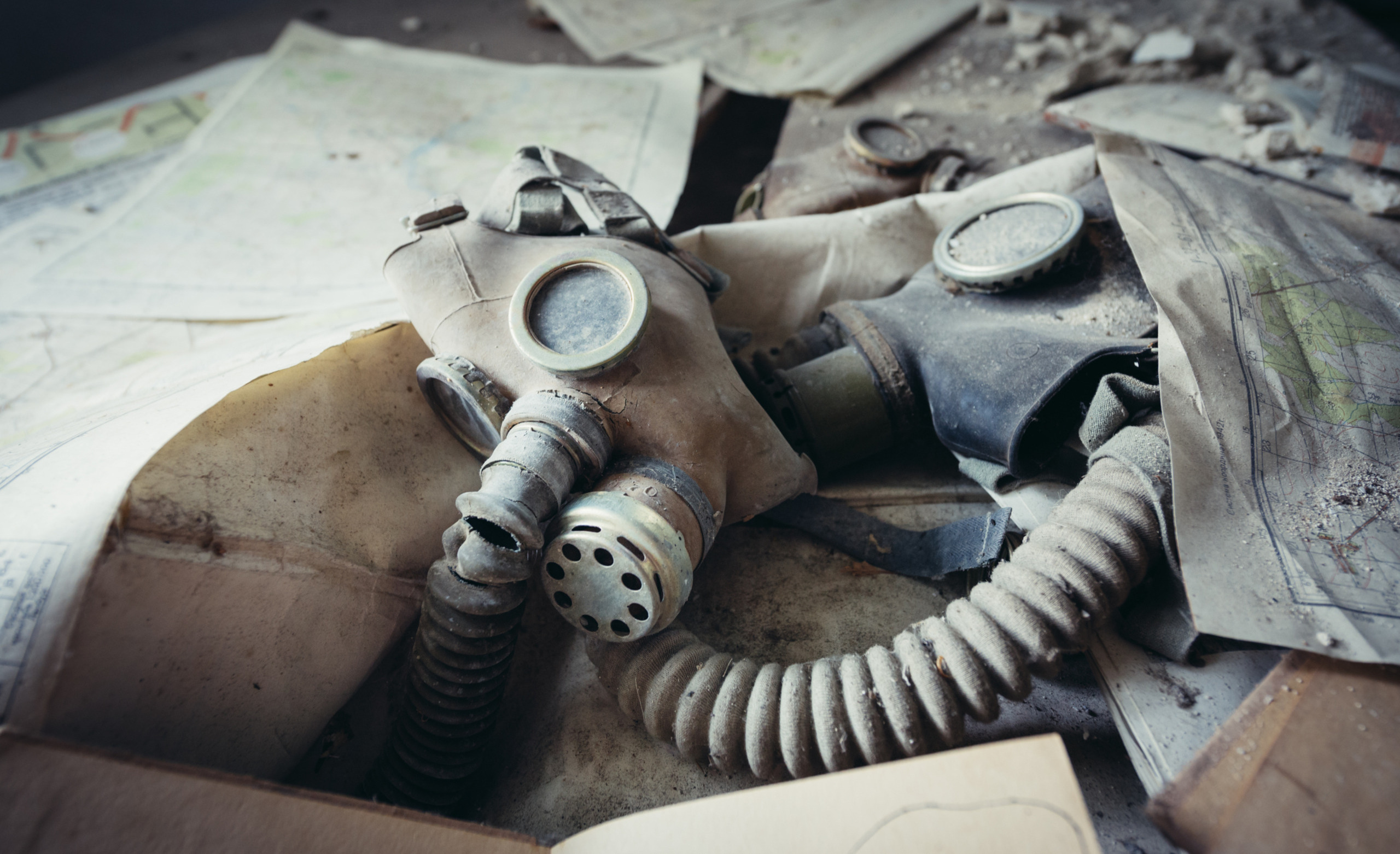
How To Survive Radiation Poisoning
Welcome to the ultimate guide on how to survive radiation poisoning. Radiation poisoning – just the term alone can send shivers down your spine. In a world where nuclear disasters and radiation exposure are real threats, knowing how to survive radiation poisoning could truly be a lifesaving skill.
From understanding the signs to taking immediate actions and seeking medical help, this guide will equip you with essential knowledge on navigating through the aftermath of a radiation emergency. So, buckle up and let’s dive into the crucial steps to enhance your chances of survival in the face of radiation poisoning!
Understanding Radiation Poisoning
Radiation poisoning occurs when the body is exposed to high levels of ionizing radiation, leading to cellular damage and dysfunction. This type of radiation can come from various sources, such as nuclear accidents, medical treatments, or even certain occupational hazards. The severity of radiation poisoning depends on factors like the dose received and the duration of exposure.
When radioactive particles penetrate the body, they disrupt normal cell functions and DNA structure. This disruption can result in a range of symptoms and health complications. Understanding how radiation affects the body is crucial in recognizing potential signs of poisoning early on.
The impact of radiation poisoning can vary from mild symptoms like nausea and fatigue to more severe conditions such as organ failure and cancer development. By educating yourself about this silent but potent threat, you empower yourself to take proactive measures in safeguarding your health against its harmful effects.
Signs and Symptoms to Look Out For
Radiation poisoning can present a range of signs and symptoms that vary depending on the level of exposure. In the initial stages, you may experience nausea, vomiting, and diarrhea. These gastrointestinal symptoms are often followed by fatigue, weakness, and dizziness.
As radiation affects your body at a cellular level, you might notice changes in your skin such as redness or blistering. Hair loss is also common in cases of severe exposure. Additionally, individuals exposed to high levels of radiation may develop fever and dehydration.
It’s crucial to pay attention to any unusual signs like unexplained bleeding or bruising as these could indicate serious internal damage caused by radiation exposure. Keep an eye out for confusion or disorientation which can be neurological manifestations of radiation poisoning. If you suspect you have been exposed to harmful levels of radiation and start experiencing any of these symptoms, seek medical help immediately.
Immediate Actions to Take
In the event of radiation exposure, taking immediate actions is crucial to minimizing its impact on your health. The first step is to evacuate the contaminated area as quickly as possible. Move away from the source of radiation and seek shelter in a safe location.
Next, remove any contaminated clothing to prevent further exposure. Be cautious when handling the clothes and dispose of them properly. After removing the clothing, it’s essential to wash exposed skin thoroughly with soap and water. This can help remove any radioactive particles that may be lingering on your skin.
Remember to avoid scrubbing vigorously, as this could cause skin irritation. Instead, gently cleanse all areas of exposed skin to reduce contamination levels. Taking these swift actions can significantly lower your risk of radiation poisoning and protect your overall well-being.
Seeking medical attention promptly after following these steps is vital for proper evaluation and treatment if necessary. Stay calm and follow healthcare professionals’ instructions carefully during this critical time for your health and safety.
A. Evacuate the Contaminated Area
When faced with radiation poisoning, one of the first crucial steps to take is evacuating the contaminated area. Whether it’s a nuclear accident or exposure to radioactive materials, leaving the affected zone promptly can significantly reduce further harm.
Evacuation ensures you distance yourself from the source of radiation, minimizing your overall exposure levels. It’s essential to move quickly but cautiously, following any emergency protocols in place and avoiding panic.
If indoors during an incident, exit the building swiftly using designated evacuation routes if available. Once outside, aim for a safe location away from potentially hazardous areas. If driving is necessary, keep windows closed and air ventilation off to prevent contamination inside the vehicle.
Remember that staying calm and focused while evacuating can make a critical difference in ensuring your safety during a radiation emergency scenario.
B. Remove Contaminated Clothing
When faced with radiation exposure, one crucial step in protecting yourself is to swiftly remove any contaminated clothing. These garments may have absorbed radioactive particles that could further harm you if left on.
Start by carefully taking off your outer layers of clothing, ensuring not to shake them as this may release more contaminants into the air. It’s essential to do this slowly and methodically to minimize the spread of radiation.
If possible, have someone assist you in removing the clothing while wearing gloves themselves for added protection. Be mindful not to touch your face or other exposed skin during this process.
Once removed, place the contaminated garments in a sealed plastic bag or container away from living spaces until they can be properly disposed of according to guidelines for hazardous materials. This simple yet critical action can significantly reduce your overall exposure risk.
C. Wash Exposed Skin Thoroughly
After evacuating and removing contaminated clothing, the next crucial step in surviving radiation poisoning is to wash exposed skin thoroughly. This simple yet vital act can help reduce further absorption of harmful radioactive particles into your body.
When washing your skin, use lukewarm water and mild soap to gently cleanse the affected areas. Avoid scrubbing vigorously as this may irritate the skin further. Pay close attention to creases and folds where contamination could be trapped.
Ensure you rinse off all soap residue completely from your skin. Pat dry with a clean towel rather than rubbing, which can also cause irritation. If possible, use disposable towels or tissues to avoid re-contamination.
Remember that prompt and thorough washing of exposed skin is essential in minimizing the risks associated with radiation exposure. Prioritize this step in your efforts to protect yourself and increase your chances of survival against radiation poisoning.
Seeking Medical Attention
If you suspect that you have been exposed to radiation and are experiencing symptoms of radiation poisoning, seeking medical attention is crucial.
Medical professionals can assess your condition, provide necessary treatments, and monitor your health closely. They may conduct blood tests, administer medications to help remove radioactive materials from your body, or offer supportive care to manage symptoms.
It’s important not to delay seeking medical help if you believe you have been exposed to high levels of radiation. Even if you are unsure about the extent of exposure, it’s better to err on the side of caution and consult a healthcare provider promptly.
Remember that early intervention can make a significant difference in managing the effects of radiation poisoning. Don’t hesitate to reach out for medical assistance if you believe you may have been affected by radiation exposure.
Treatment Options for Radiation Poisoning
When it comes to treatment options for radiation poisoning, prompt medical attention is crucial. Healthcare providers may administer treatments such as potassium iodide to protect the thyroid from radioactive iodine.
Supportive care like fluids and medication for symptoms can also be provided. In severe cases, patients might require blood transfusions or bone marrow transplants to help replenish damaged cells.
Doctors may use chelation therapy to remove radioactive materials from the body. This process involves the administration of substances that bind with heavy metals and eliminate them through urine or feces.
Hyperbaric oxygen therapy is another method used in some cases to deliver high levels of oxygen under pressure, which can aid in tissue repair and decrease inflammation caused by radiation exposure.
The specific treatment approach will depend on the level of radiation exposure and individual health factors, so seeking immediate medical help is critical for a better chance at recovery.
Long-Term Effects of Radiation Poisoning
Long-term effects of radiation poisoning can have a lasting impact on the body. Exposure to high levels of radiation over time can lead to various health complications. These effects may not be immediately apparent but can manifest years after exposure.
Radiation poisoning can increase the risk of developing cancer, including leukemia, thyroid cancer, and breast cancer. The damage caused by radiation at a cellular level can lead to mutations that trigger abnormal cell growth.
Chronic fatigue, infertility, and organ damage are also potential long-term consequences of radiation exposure. Damage to tissues and organs from prolonged exposure may result in reduced organ function or failure.
Mental health issues such as anxiety and depression may arise due to the stress and uncertainty associated with long-term health implications of radiation poisoning. It is crucial for individuals who have been exposed to seek ongoing medical monitoring and support to manage these potential long-lasting effects.
Steps to Protect Yourself from Radiation Exposure
Understanding the risks associated with radiation exposure is crucial in safeguarding your health. To protect yourself, start by familiarizing yourself with your surroundings and potential sources of radiation. Stay informed about any nuclear facilities or hazardous areas nearby.
When necessary, always use protective gear such as lead aprons or gloves to minimize direct contact with radioactive materials. This simple step can significantly reduce your risk of exposure. Additionally, avoid consuming contaminated food and water sources that may have been affected by radiation.
In case of a nuclear emergency, having an emergency kit prepared with essential supplies like iodine tablets and non-perishable food can be life-saving. Stay vigilant and proactive in protecting yourself from radiation exposure at all times.
A. Know Your Surroundings
When it comes to surviving radiation poisoning, awareness is key. Knowing your surroundings can make a significant difference in safeguarding yourself from potential exposure. Whether you live near a nuclear facility or are traveling in an unfamiliar area, being informed about potential sources of radiation is crucial.
Stay updated on local emergency protocols and evacuation routes. Familiarize yourself with nearby medical facilities equipped to handle radiation exposure cases. Understanding the risks associated with different environments will better prepare you to take necessary precautions.
Be mindful of any warning signs or alarms indicating increased levels of radiation. Pay attention to official alerts and announcements that could affect your safety. By staying vigilant and informed, you empower yourself to make quick and effective decisions in the face of a nuclear emergency.
Remember, knowledge is power when it comes to protecting yourself from radiation hazards. Take the time to educate yourself about potential risks in your environment and stay proactive in minimizing your exposure risks at all times.
B. Use Protective Gear When Necessary
When it comes to surviving radiation poisoning, using protective gear is crucial. Radiation exposure can happen unexpectedly, so being prepared with the right equipment can make a significant difference in your safety.
Ensure you have access to items like gloves, masks, and coveralls that are specifically designed to shield against radiation. These tools act as a barrier between you and harmful radioactive materials, reducing the risk of contamination.
Wearing appropriate gear not only protects your skin and lungs but also helps prevent the ingestion or inhalation of radioactive particles. Remember that every layer of protection counts in minimizing your overall exposure levels.
Whether you’re dealing with fallout from a nuclear event or working in an environment with potential radiation hazards, don’t underestimate the importance of wearing proper protective gear. Stay informed on what equipment is necessary for various scenarios and always prioritize your safety first.
C. Avoid Contaminated Food and Water Sources
When it comes to surviving radiation poisoning, avoiding contaminated food and water sources is crucial. In the aftermath of a nuclear event, these staples can become tainted with harmful levels of radiation, posing a serious risk to your health.
To protect yourself, always opt for sealed or packaged items from reliable sources. Fresh produce and open containers could have been exposed to dangerous levels of radiation particles in the air or soil.
In addition, be cautious when consuming water from local sources. Radiation fallout can contaminate reservoirs and groundwater supplies. It’s advisable to rely on bottled water or use filtration systems designed specifically for removing radioactive particles.
Staying informed about any potential contamination in your area is key. Government agencies often provide updates on safe food and water consumption post-nuclear incidents. Stay vigilant and prioritize your well-being by being mindful of what you eat and drink during uncertain times.
Preparing for a Nuclear Emergency: Tips and Strategies
When it comes to preparing for a nuclear emergency, being proactive is key. Start by creating an emergency kit that includes essentials like food, water, medications, and flashlights. Make sure to have a plan in place for evacuation routes and designated meeting points with your loved ones.
Stay informed about potential threats or warnings in your area through reliable sources. Familiarize yourself with the different types of radiation and their effects so you can better understand the risks involved during a nuclear incident.
Consider investing in radiation detection devices for early warning signs. Practice drills with your family to ensure everyone knows what to do in case of an emergency. Stay updated on community response plans and protocols set in place by local authorities.
Remember, preparation is key when it comes to facing unexpected situations like a nuclear emergency. By taking proactive steps now, you can help ensure the safety and well-being of yourself and those around you should such a situation arise.
Conclusion
As we wrap up this guide on how to survive radiation poisoning, it’s crucial to remember that being prepared and informed is key to protecting yourself and your loved ones in the event of a nuclear emergency. Understanding the signs, symptoms, immediate actions to take, seeking medical attention, treatment options, long-term effects, and steps to protect yourself are all vital components of surviving radiation exposure.
By knowing what to look out for and how to react swiftly and effectively in such situations, you can increase your chances of minimizing the risks associated with radiation poisoning. Remember always to stay informed about your surroundings, use protective gear when needed, avoid contaminated sources of food and water if possible, and have a plan in place for emergencies.
While the prospect of facing radiation poisoning may seem daunting, being proactive in your approach can make all the difference. Stay safe, stay informed – because knowledge truly is power when it comes to surviving radiation poisoning.



